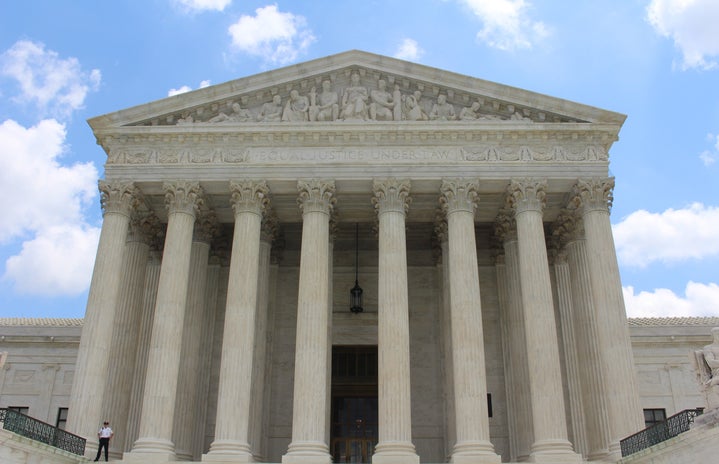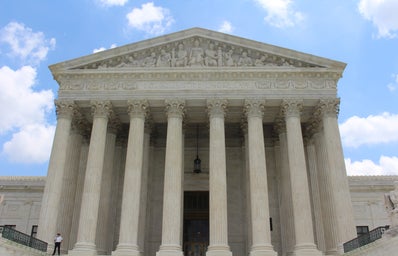The recent death of Ruth Bader Ginsberg has put a spotlight on her achievements in obtaining equality, especially for women. She founded the Women’s Rights Project, fought for equal pay, and overall improved women’s rights within the United States. President Trump’s recent announcement nominating Amy Coney Barrett to replace Ginsberg on the Supreme Court came as a surprise and brought up questions of who should be filling the vacancy so close to the election. Barrett’s strict conservative views and the would-be Republican majority on the Supreme Court have caused Democrats to push back against nominating a new judge before the election. Amy Coney Barrett has the potential to move political discourse to reflect more traditional views, directly opposing Ruth Bader Ginsberg’s legacy. She may publicly praise Ginsberg, but their political differences prove the hypocrisy of Barrett’s views.
Amy Coney Barrett is associated with People of Praise, a national religious group. Her conservative Catholic background has proven to influence her decisions within the court, as she looks to Christianity to tell right from wrong. Having religious influence can cause issues in cases regarding abortion, gun control, immigration, LGBTQ+ rights, and other subjects that are often denied because of the Bible.
The most pressing concern on the Left with Barrett filling the vacancy is the overturn of Roe vs. Wade, the Supreme Court decision to legalize abortion. While she has never sat as the judiciary on an abortion trial, her past statements agreeing with the Church’s views on abortion shows her viewpoints clearly. In 1998, Barrett wrote in a Marquette Law Review article that she feels as if abortion and euthanasia “take away an innocent life.” She is also reported stating that she believes life begins at conception. Women are frightened of Barrett’s statements because of the threat it poses to their bodily and reproductive rights. If Roe vs. Wade is overturned, millions, including victims of sexual assault, would not have access to safe abortion.
Barrett’s views on the second amendment reflect the goal of the Republican agenda and the National Rifle Association: firearms should be widely accessible. Recently, she came out against denying potentially dangerous people the right to own a gun. Barrett is in strong agreement that everyone has the right to bear arms, even in the light of increased mass shootings. If she fills the Supreme Court vacancy, you can bet on little to no gun reform.
Multiple cases have proven Barrett has an issue with race, such as supporting an effort to separate employees based on ethnicity within a Chicago-area chain store. Her views are similar to President Trump’s, such as both supporting denying some immigrants permanent residence in the U.S. Her obvious bias with race is a direct conflict with the current Black Lives Matter movement and fighting to change institutionalized racism.
The issue of nominating a Supreme Court justice during an election year also happened during the Obama administration, but with key differences. The majority-Republican Senate attempted to block President Obama’s nomination of Merrick Garland after the death of Antonin Scalia in February 2016. Senate Majority Leader Mitch McConnell immediately denies the president his powers under the argument that it was 11 months until the next election, too close to a new president. Yet, When Ruther Bader Ginsberg’s death was announced, Mitch McConnell began pushing for Trump to fill the vacancy before the election, merely two months until the election. Although Obama ignored these rejections and Merrick Garland filled the vacancy, he received no support from the Senate Republicans. Trump’s nomination Amy Coney Barrett is supported by many Senate Republicans, which is helping to rush the nomination process.
Although these are a few examples, the list goes on and on. Amy Coney Barrett is a hypocrite and the wrong person to fill Ruth Bader Ginsberg’s spot on the Supreme Court. Ginsberg worked tirelessly to create more equal opportunities for women, and Barrett is going to work to take those rights away. Even though joining the Supreme Court doesn’t give Barrett endless power, her viewpoints can influence how citizens view equality and fairness for minority groups. Six conservative justices will give a bias in how the court rules cases. The livelihood of all minority groups is in danger if Amy Coney Barrett becomes the next Supreme Court justice. Being so close to the election, we must fight to hold-off the selection process until the next president is determined.



